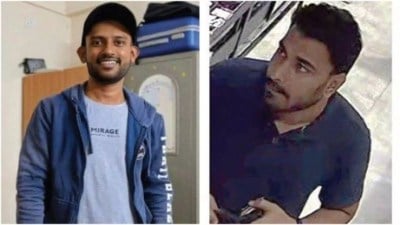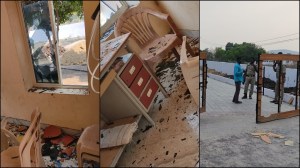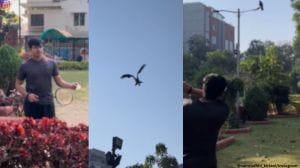- India
- International
7,277 POCSO cases pending in 19 Delhi courts
According to a source, the information, placed before Chief Justice of India Ranjan Gogoi in July, sheds light on the number of POCSO cases pending in the capital from March 2013, when POCSO courts were set up, until June 30, 2019.
 This remains a challenge in the capital, where 7,277 cases filed under the Protection of Children from Sexual Offences (POCSO) Act are awaiting trial before 19 special courts, each presided over by a judge — or an average of 383 per court — documents accessed by The Sunday Express show. (Representational Image)
This remains a challenge in the capital, where 7,277 cases filed under the Protection of Children from Sexual Offences (POCSO) Act are awaiting trial before 19 special courts, each presided over by a judge — or an average of 383 per court — documents accessed by The Sunday Express show. (Representational Image)
On July 25, the Supreme Court had issued directions to set up special courts in each district in the country which had over 100 pending cases of child abuse and sexual assault. This remains a challenge in the capital, where 7,277 cases filed under the Protection of Children from Sexual Offences (POCSO) Act are awaiting trial before 19 special courts, each presided over by a judge — or an average of 383 per court — documents accessed by The Sunday Express show.
According to a source, the information, placed before Chief Justice of India Ranjan Gogoi in July, sheds light on the number of POCSO cases pending in the capital from March 2013, when POCSO courts were set up, until June 30, 2019. The SC had directed that the required number of special courts be set up within 60 days under a centrally funded scheme that would take care of payment to presiding officers, staff, and support persons for a child-friendly infrastructure.
For the capital’s 19 courts, however, the road ahead remains uphill.
Consider this: Delhi Police has registered 11,669 cases under the POCSO Act since March 2013, of which 4,392 cases have been disposed till June this year. While the disposal rate increased from 11% in 2013 to 17% in 2014, it dipped in the following years, to a low of 12% in 2017.
A large number of cases — 3,455 — under trial in Delhi’s special courts are stuck at the prosecution evidence stage.

Delhi, however, fares better than neighbouring UP which has 44,376 cases pending trial till June 2019 at its 75 special courts. Maharashtra has 19,968 cases pending in 36 special courts and Madhya Pradesh has 9,878 cases pending trial in 51 special courts.
Model guidelines under the POCSO Act state that compensation should be paid to the victim at an interim stage during pendency of trial. As per data, for 1,379 FIRs registered in 2017, only 298 victims were compensated.
Judicial experts, public prosecutors at special courts and court staff suggest the heavy backlog is due to a delay in forensic reports, witnesses turning hostile and not attending court hearings, lack of facilities where vulnerable witnesses can depose, delay in police probe, and, sometimes, non-availability of public prosecutors.
A public prosecutor attached with a special court in Tis Hazari explained: “We have the maximum number of cases with us. New cases are disposed quicker than old cases because we have streamlined submission of documents so victims are not brought to court unnecessarily. But there are many rescued from brothels, or cases of minor domestic helps, who have not come for court hearings. It is hard to trace them.”
Emphasising on the need for structural changes, Swagata Raha, a consultant with Enfold Proactive Health Trust, Bengaluru, said, “Special courts are not exclusively dealing with these cases; although the law says prosecutors need to be exclusive (to such cases), they aren’t. You have a regular sessions court being labelled a special court, which deals with these matters alongside regular matters.” “Many POCSO cases depend on forensic reports, especially cases dealing with penetrative sexual assault or pregnancy. You can’t list the matters until the report comes,” Raha said.
An investigating officer in a case involving the rape of a five-year-old girl elaborated on how delay in reports poses a challenge: “It took me over six months to get the FSL report. This is faster… earlier, I have waited for over a year.”
Advocate Gaurav Kumar Bansal, who has dealt with several POCSO cases, said there was a delay of three or more years to get the FSL report in some cases.
But FSL director Deepa Verma told The Sunday Express that while a special POCSO unit has been set up, recruitment and procurement of equipment is taking time: “Biological reports take time; we are expediting that. We are now sending out POCSO case reports in one month.”
Senior advocate H S Phoolka, who has been pressing since 2016 for time-bound trials and disposal of such cases, said that as per the latest DCPCR report, victims in a majority of cases come from families with income less than Rs 20,000. “When they are not compensated on time and their health and education needs are not addressed, they lose faith and…have no option but to settle the matter and turn hostile,” he said.
Apr 18: Latest News
- 01
- 02
- 03
- 04
- 05






































